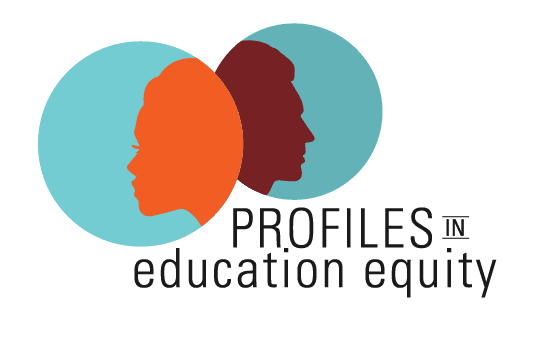Profile in Education Equity: Tim Green Jr., Memphis Restorative Justice Coalition
 As co-founder of Memphis Restorative Justice Coalition (MRJC), Tim Green Jr. works with teachers, students, parents, and community leaders to implement restorative practices and advocate for restorative justice in their homes, schools, and communities. The organization’s goal is to decrease the amount of suspensions and expulsions of Black and Latino youth in Shelby County. As a former classroom teacher and school leadership team member, Tim has worked in youth development for 17 years and continues to find new ways to make education attainable and equitable for the students he serves.
As co-founder of Memphis Restorative Justice Coalition (MRJC), Tim Green Jr. works with teachers, students, parents, and community leaders to implement restorative practices and advocate for restorative justice in their homes, schools, and communities. The organization’s goal is to decrease the amount of suspensions and expulsions of Black and Latino youth in Shelby County. As a former classroom teacher and school leadership team member, Tim has worked in youth development for 17 years and continues to find new ways to make education attainable and equitable for the students he serves.
Define how you advance education equity in Tennessee.
On the state level, we work with Education Trust-Tennessee and elected officials to create/partner on legislation that will encourage a better education landscape for students, teachers, and parents. On the district/local level, we also work with our elected officials to develop training around restorative practices. This past year, we piloted our program in two schools, with one showing a significant decrease in suspensions. We use our feedback from trainings and events to create our yearly agenda. Moving into our third year, we now offer a restorative practices and circles training as well as an implicit bias training, and we have a coalition made up of seven organizations that provide resources around social-emotional learning and addressing social injustices.
Share one big success from your work to date and how you measured success.
One big success was our inaugural Public Policy and Restorative Justice Symposium. The event brought together representation from multiple stakeholders: students, parents, teachers, advocates, district staff, and more. The most powerful component of the symposium was the call to action, where the diverse community collectively helped to develop our legislative agenda. One thing that came out of that session was a need for restorative practices to be adopted by schools. Our youth leadership program and one of our partner schools not only facilitated a restorative practice session at our symposium, but they also independently requested a hearing from their school’s board and formally presented their recommendations for adopting a policy for restorative practices as an alternative to suspension.
What’s your favorite quote? Why?
Your attitude, not your aptitude, will determine your altitude –Zig Ziglar
I believe that you can get a lot of things accomplished with a positive attitude. It may seem hard at times, but realizing that all things are working together to make something great happen in your life is a thought that is constantly in the back of my head. It is something that I have always shared with the youth that I serve.
What’s next in regard to your work?
We recently hosted our Second Annual Public Policy and Restorative Justice Symposium. It is a time to honor local leaders in advocacy work, hear about the state of our city, and create a call-to-action that will guide our work this year. We are also developing the MRJC Institute, a hub for our trainings and other workshops, and working with local LEAs to create workshops that explore restorative practices on a virtual level.
